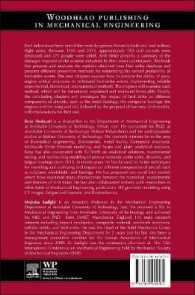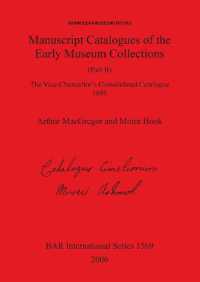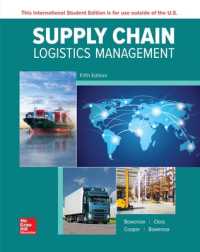- ホーム
- > 洋書
- > 英文書
- > Business / Economics
Full Description
This is an open access title available under the terms of a CC BY-NC-SA 3.0 IGO licence. It is free to read at Oxford Scholarship Online and offered as a free PDF download from OUP and selected open access locations.
A key challenge for the post-COVID global economy is whether the disproportionate impact of the crisis on informal workers, who form the majority of the world's workforce, will be acknowledged. Or whether harmful and negative stereotypes will persist.
Today, despite the role of these essential frontline workers - producing, processing, selling, cooking and delivering food, providing cleaning, childcare, eldercare, healthcare, transport, waste removal, and other essential services - many observers consider the informal economy to be non-compliant (resisting registration and taxation) and associate it with low productivity (a drag on the economy) or with crime (illegal activities) and grime (blight on modern cities). Yet, most informal workers are working poor trying to earn an honest living in often hostile environments. Most suffered severe declines in work and earnings during successive waves of the COVID pandemic, and related restrictions and recessions, and have gone deeper into debt and depleted their savings and assets in order to survive.
This book explores and informs answers to that key challenge. It presents findings on the impact of the COVID crisis on informal workers in Asia, Africa, and North and Latin America. The chapters of the volume analyse the impact of the COVID crisis on informal workers, interrogate whether and which economic recovery plans and schemes include informal workers, and explore what a more inclusive economic recovery and reforms might look like.
Contents
1: Martha Alter Chen, Erofili Grapsa, Ghida Ismail, Sarah Orleans Reed, Michael Rogan, and Marcela Valdivia: COVID-19 and informal work: Degrees and pathways of impact in eleven cities around the world
2: Martha Alter Chen and Joann Vanek: The impact of the COVID-19 pandemic on employment: Findings from national labour surveys in five Latin American countries
3: Michael Danquah, Robert Osei, Simone Schotte, and Kunal Sen: The impact of COVID-19 on employment and earnings in Ghana
4: Michael Rogan and Caroline Skinner: South Africa's informal economy and COVID-19: Differentiated impacts and an uneven recovery
5: Simone Schotte and Rocco Zizzamia: The impact of COVID-19 on urban vulnerable livelihoods: Accounts from residents of Cape Town's largest township
6: Hossain Zillur Rahman, Atiya Rahman, Md Saiful Islam, Avinno Faruk, Imran Matin, Mohammad Abdul Wazed, and Umama Zillur: Recovery with distress: Unpacking COVID-19 impact on livelihoods and poverty in rural areas and urban low-income settlements of Bangladesh
7: Deepita Chakravarty and Nandini Nayak: The COVID-19 pandemic and intra-household bargaining: A case of domestic workers in Delhi
8: Michael Danquah, Amina Ebrahim and Maureen Were: The uneven path to recovery: The sub-Saharan African experience
9: Siviwe Mhlana, Rachel Moussié, Sally Roever and Michael Rogan: Informal employment and an inclusive recovery: What is missing from national economic recovery plans?,
10: Laura Alfers and Florian Juergens-Grant: Social protection, the COVID-19 crisis and the informal economy: Lessons from relief for comprehensive social protection
11: Martha Alter Chen, Sophie Plagerson and Laura Alfers: A new social contract inclusive of informal workers
12: Ravi Kanbur, Jayati Ghosh, Barbara Harriss-White, and Jan Breman: Reflections on informal employment, COVID-19 and the future








